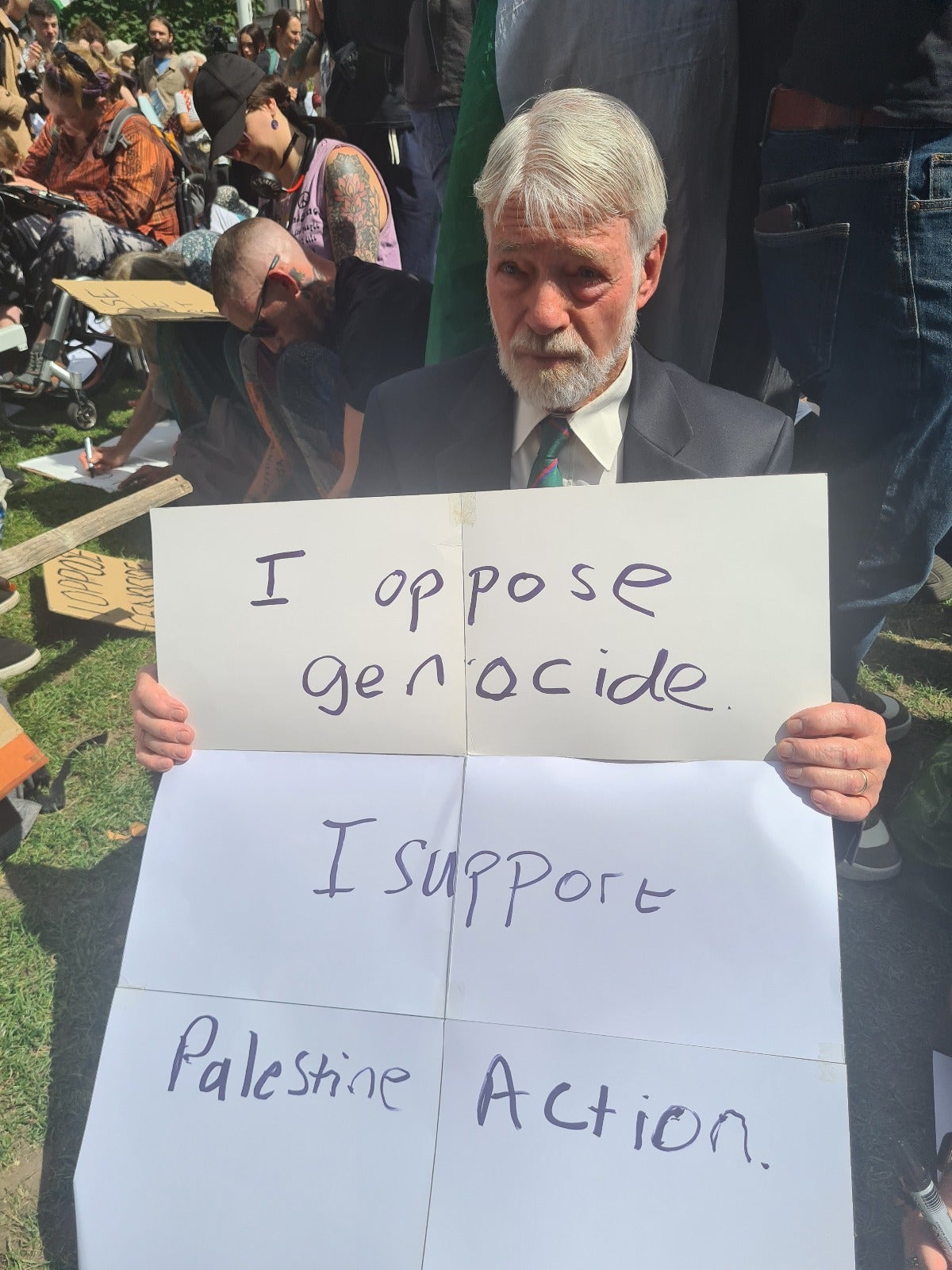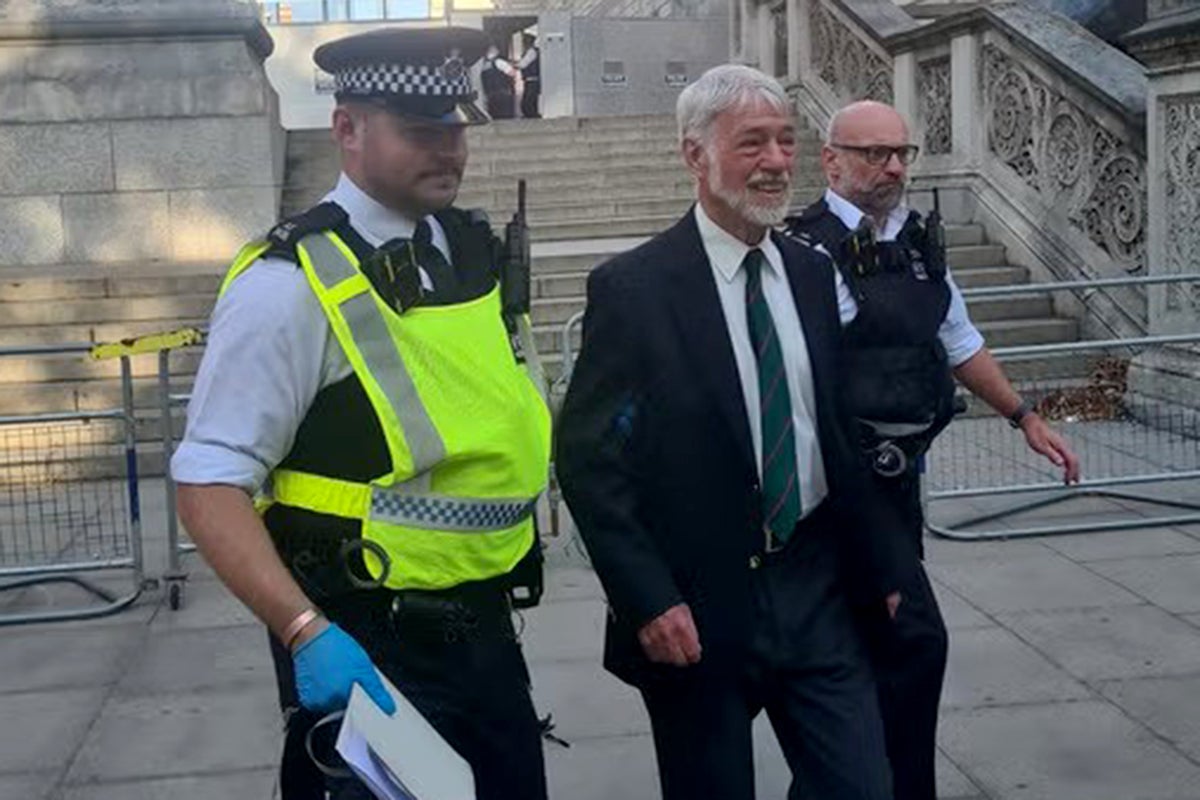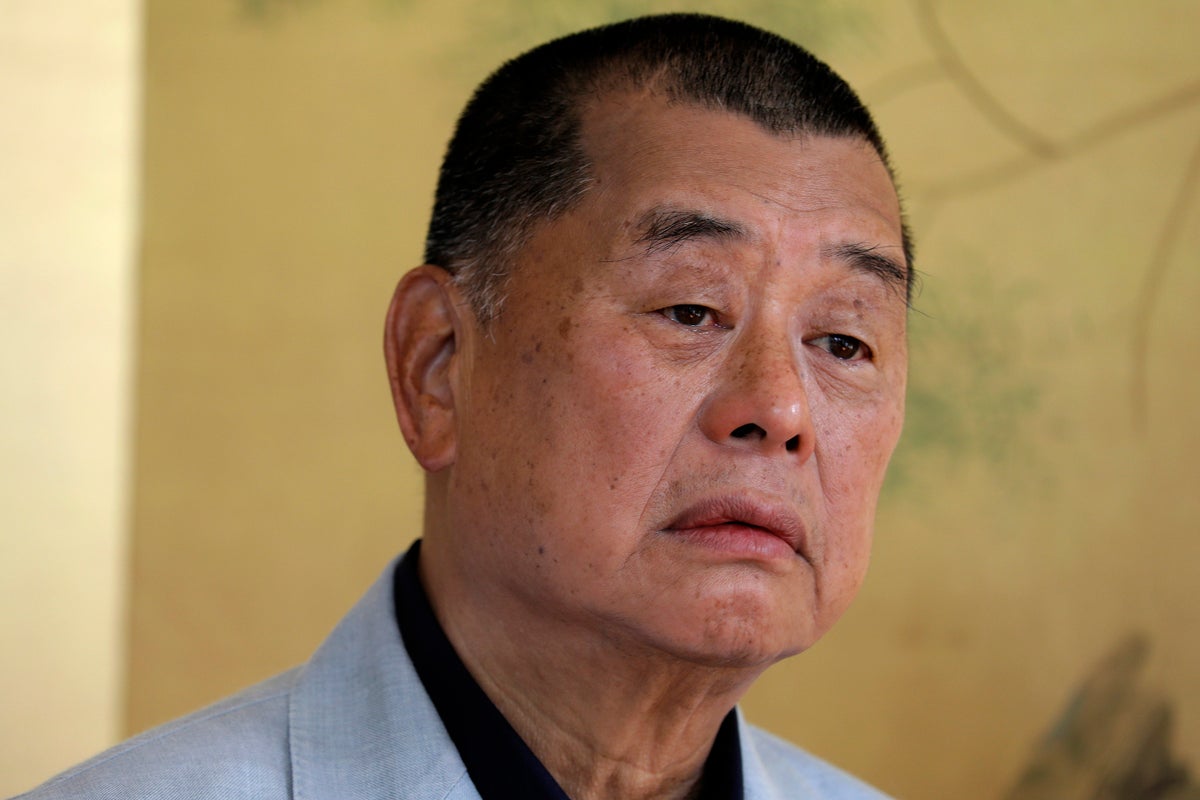King Charles Street, in central London, is a road Colonel Chris Romberg knows well. It was his postal address during his final posting in the military, a link to home while he was overseas.
Last week, the address became significant in Col Romberg’s life once again after he was arrested for the first time in his life and taken to a processing station – set up by the Metropolitan Police – on that same street.
Hundreds of protesters, many of whom – like 75-year-old Col Romberg – were retired, had silently held up placards in Parliament Square, Westminster to protest genocide and express support for the group Palestine Action.
Due to the home secretary’s proscription of Palestine Action under terror laws, expressing support for them on a T-shirt or on a sign is now a criminal offence. As a result, 522 arrests were made by the Met Police – some 112 of whom were over-70-year-olds.
A former defence attache at the UK embassies in Jordan and Egypt, Col Romberg waited around five hours before he was arrested, and then a further three to be processed by officers and released on street bail.
He had been involved in campaigning for the Palestinian cause for some years, feeling motivated by the oppression he saw during his time in the Middle East. His father, aunts and grandparents, who were Christians of Jewish descent, fled Nazi-controlled Austria in 1938, he explained.

This history, he said, has also driven him to oppose what is happening in Gaza, and what he described as western governments’ complicity in the unfolding humanitarian crisis.
Speaking about his decision to take part in last weekend’s protest, he said: “I did think about it and I did discuss it with family because it’s not an easy decision to make. Although it wasn’t certain we would be arrested, there was a high likelihood we would be.
“It was my first time being arrested. But all our freedoms and all the best movements that there have been in democratic and non-democratic history have been achieved by people taking risks, and people taking action. My motivation is to defend freedom of speech and expression, and also to prevent a genocide – which we have a moral and legal duty to do.”
.jpeg)
He added: “For a lot of people there, I believe it was the first time they have been arrested, and the first time they have taken action in that form. The implications are serious because we are being arrested under a very serious piece of legislation – the terrorism act. For many people, especially younger people, that can have serious implications for their lives. For those that are older like me, then those long-term consequences may not be quite the same, but nevertheless they are serious.”
His family’s history has connected him to descendants of Holocaust survivors who are part of the pro-Palestine protest movement. He explained: “In my case, my father and his parents and sisters survived because they fled. They fled Austria in 1938 after the German takeover.
“Because of our family connections, we are horrified that a genocide should again be taking place. And for many, this brings back horrible memories from what they heard from their own parents and grandparents, and therefore we are determined to oppose it”.
.jpeg)
Labour peer and former shadow attorney general Shami Chakrabarti has warned that the ban is at risk of becoming an “I am Spartacus” moment, urging the government to “think again”.
Former Labour minister Peter Hain has described the mass arrests as “madness”, saying Palestine Action was not “equivalent to real terrorist groups like al-Qaeda or Islamic State”.
Co-founder of Palestine Action Huda Ammori has been granted permission by the High Court to challenge the group’s ban in the courts – the first case where such a legal battle has been allowed to go ahead.
Defend Our Juries, who co-ordinated last Saturday’s protest, have pledged that they will demonstrate again in September if 1,000 people agree to take part.
With the demonstrators taking to the streets in protest at the genocide and to stand up for civil liberties, home secretary Yvette Cooper has sought to emphasise the dangers of Palestine Action.
In a statement released after the weekend’s arrests, she said: “Palestine Action was proscribed based on strong security advice following serious attacks the group has committed, involving violence, significant injuries and extensive criminal damage… Many people may not yet know the reality of this organisation, but the assessments are very clear – this is not a non-violent organisation”.
Ms Ammori said that the proscription of the group was “solely based on property damage, and any insinuation that it is based on other things is categorically untrue or unavailable to the rest of us to be able to rebut”.







